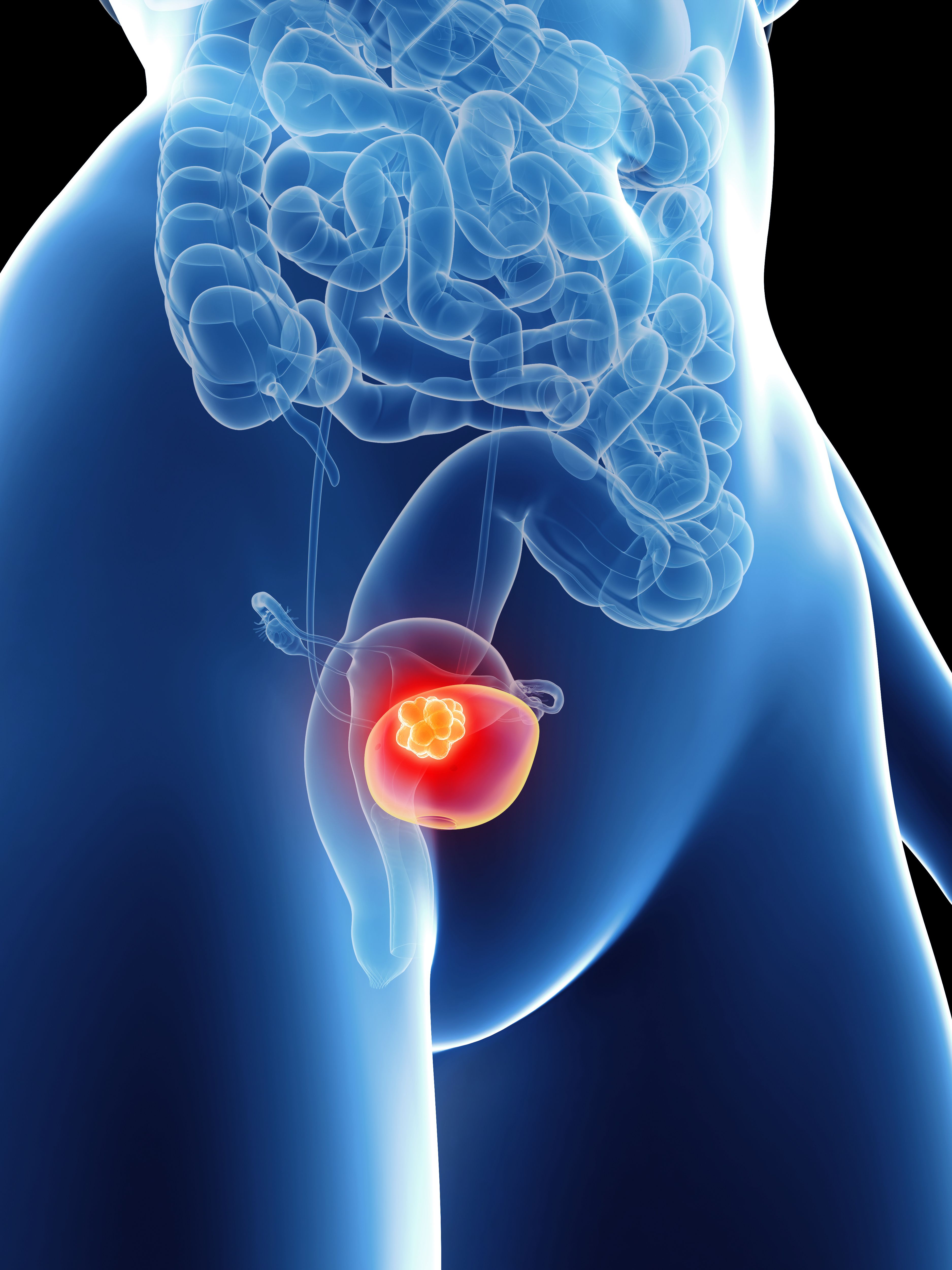FDA Grants Priority Review to Durvalumab in MIBC
If approved, durvalumab will be the first and only perioperative immunotherapy regimen available for the treatment of patients with muscle-invasive bladder cancer in this curative-intent setting.

- The supplemental biologics license application (sBLA) for durvalumab (Imfinzi) has been accepted and granted priority review by the FDA for muscle-invasive bladder cancer (MIBC).
- The basis of this regulatory decision comes from positive phase 3 NIAGARA trial results (NCT03732677).
- Durvalumab demonstrated a statistically significant and clinically meaningful event-free survival (EFS) and overall survival (OS) benefit in this patient population.
The FDA has accepted the sBLA for durvalumab and granted it priority review for the treatment of patients with MIBC.1 A Prescription Drug User Fee Act date for their regulatory decision is expected during the second quarter of 2025.
Data from the phase 3 NIAGARA trial, which was presented during the 2024 European Society for Medical Oncology (ESMO) Congress and simultaneously published in The New England Journal of Medicine, support this regulatory decision. Here, the combination of neoadjuvant durvalumab plus chemotherapy, followed by adjuvant durvalumab, significantly improved EFS and OS in patients with cisplatin-eligible MIBC, compared with neoadjuvant chemotherapy plus placebo. These benefits were achieved without affecting patients' ability to undergo radical cystectomy.
If durvalumab is approved in this setting, it will be the first and only perioperative immunotherapy regimen available.
"New options for muscle-invasive bladder cancer are vital because nearly half of patients will see their cancer return or progress despite undergoing curative-intent treatment, including removal of their bladder. Today’s priority review designation recognizes the urgent need for new options for these patients and the potential of [durvalumab] to transform the standard of care as the first and only perioperative immunotherapy regimen to delay recurrence and extend survival in this setting," said Susan Galbraith, executive vice president, oncology research and development, AstraZeneca, in a press release.
Bladder cancer: © vitanovski - stock.adobe.com

Behind the Phase 3 NIAGARA Trial
NIAGARA is a randomized, open-label, multicenter, global trial which enrolled adult patients with cisplatin-eligible MIBC with a clinical stage of T2-T4aN0/1M0.2 Patients were evaluated, confirmed for radical cystectomy, and had urothelial carcinoma with or without divergent differentiation or histologic subtypes. Further, patients were required to have an ECOG performance status of 0 or 1, and a creatinine clearance of at least 40 mL/min.
A total of 1530 patients were enrolled onto the study, and 1063 patients were randomly assigned in a 1:1 fashion to receive 1500 mg of intravenous durvalumab every 3 weeks plus gemcitabine/cisplatin for 4 cycles, followed by durvalumab alone every 4 weeks post radical cystectomy for 8 cycles; or 4 cycles of gemcitabine/cisplatin alone prior to cystectomy, followed by no further treatment after surgery.
EFS by blinded independent review and pCR rate at the time of cystectomy served as the dual primary end points of the trial. Secondary end points consisted of OS and safety, and additional end points were disease-free survival, disease-specific survival, metastasis-free survival, health-related quality of life, and 5-year OS.
In the planned interim analysis, treatment with perioperative durvalumab led to a 32% reduction in the risk of disease progression, recurrence, not undergoing surgery, or death compared with neoadjuvant chemotherapy with radical cystectomy alone (95% CI, 0.56-0.82; P <.0001). In the durvalumab arm, the estimated median EFS was not yet reached vs 46.1 months in the comparator arm, and at 2 years, an estimated 67.8% of patients treated with the durvalumab vs 59.8% in the comparator arm were event free.
For OS, the durvalumab perioperative regimen reduced the risk of death by 25% compared with neoadjuvant chemotherapy with radical cystectomy (HR, 0.75; 95% CI, 0.59-0.93; P =.0106). The median survival was not yet reached in either arm, and at 2 years, an estimated 82.2% of patients given the durvalumab regimen and 75.2% in the comparator arm were alive.
Looking at safety, the durvalumab regimen was generally well tolerated with no new safety signals seen in both the neoadjuvant and adjuvant settings. Most patients in both arms experienced adverse events (AEs) of any cause (99% in the durvalumab arm; 100% in the comparator arm), 69% and 68% of which were grade 3/4, respectively. Serious AEs were seen in 62% and 55% of patients, respectively. AEs leading to death (5%; 6%), discontinuation of study treatment (21%; 15%), discontinuation of neoadjuvant durvalumab (9%; not applicable [NA]); discontinuation of neoadjuvant chemotherapy (14%; 15%), not undergoing radical cystectomy (1%; 1%), a delay in surgery (2%; 1%), and discontinuation of adjuvant durvalumab (8%; NA) were reported.
A total of 41% of patients in both arms experienced potential treatment-related AEs, 0.6% of which resulted in death in both arms. Any-grade immune-mediated AEs were reported in 21% of patients in the durvalumab arm vs 3% of patients in the comparator arm.
Further, the results seen with durvalumab neoadjuvant chemotherapy were similar to the known profiles of the individual agents and did not impact patients’ ability to complete 4 cycles of chemotherapy or undergo surgery compared to neoadjuvant chemotherapy alone.
Now, regulatory applications are being reviewed in the European Union, Japan, and several other countries based on these results.1
REFERENCES
IMFINZI® (durvalumab) granted priority review in the US for patients with muscle-invasive bladder cancer. News release. AstraZeneca. December 6, 2024. Accessed December 6, 2024. https://tinyurl.com/mr3yb46k
Powles T, Van der Heijden MS, Galsky M, et al. A randomized phase III trial of neoadjuvant durvalumab plus chemotherapy followed by radical cystectomy and adjuvant durvalumab in muscle-invasive bladder cancer (NIAGARA). Presented at: 2024 ESMO Congress; September 13-17, 2024; Barcelona, Spain. Abstract LBA5.